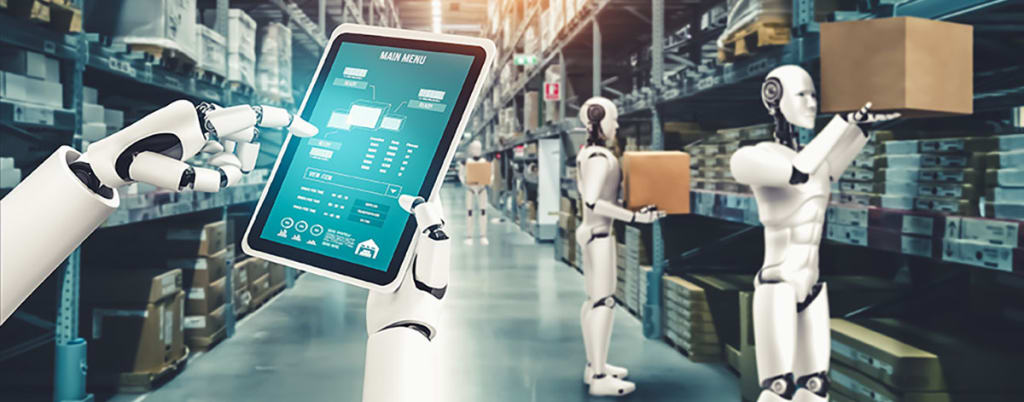7 Ways AI is Transforming the Logistics Industry: From Smoother Deliveries to Enhanced Safety
AI is transforming logistics in many ways, from predictive analysis and automation to improved customer service and beyond

New-age technologies have brought about significant changes in the logistics industry over the past few years. Artificial intelligence (AI), for example, has been a game changer for the supply and demand chains, offering diverse applications like automating repetitive tasks, improving efficiency, and providing better customer experience. Moreover, e-commerce companies can leverage AI for real-time tracking and monitoring of orders.
In this article, we will discuss the key benefits of incorporating AI in logistics, highlighting its significance in boosting efficiency and meeting the ever-changing demands of modern supply chains.
7 Benefits of AI in Logistics
1- Predictive Analysis
AI-powered systems can analyze vast amounts of historical and real-time data to predict future demands, identify fluctuations in inventory, and anticipate potential disruptions. This streamlines inventory levels to avoid stockouts and promotes improved supply chain operations. The accurate future forecast of demands enables businesses to ensure they stock the right products at the right time and place, leading to improved efficiency and customer satisfaction. The supply chain management powered by AI will evolve, moving beyond predicting the future, and automating a significant portion of the logistics workflows.
2- Autonomous Vehicle
AI can improve trucking efficiency for faster deliveries by identifying the optimal route to destinations. It can quickly and smartly analyze historical data on damage incidents to potentially predict unfavorable situations like rough roads, weather conditions, and sudden stops. This helps drivers to use safety features and minimize the possibility of package damage, leading to better customer experience and profitability.
3- Warehouse Automation
Large e-commerce stores like Amazon are leveraging AI and robotics to automate their warehouses to enable quick and intricate logistics fulfillment solutions. Packing and picking are among the most time-consuming and labor-intensive tasks in warehouses. Robotic arms can perform these tasks much faster than human workers, thereby reducing the need for manual labor, improving efficiency and safety, minimizing workplace hazards, and freeing up human workers to focus on more strategic tasks. Robots can work 24/7, further increasing overall efficiency.
4- Shipment Process Optimization
As mentioned above, AI is being used in transportation. AI can analyze complex data sets to help navigate the fastest and most cost-effective shipping routes. This is particularly helpful for logistics companies as they serve numerous customers scattered across a wide geographical area.
Several factors like traffic congestion, weather conditions, etc. can slow down deliveries. AI can be leveraged to forecast traffic patterns and busy periods, allowing drivers to avoid these challenges and operate a more profitable business.
5- Inventory Management
AI can streamline manual inventory management and free up a company's resources to focus on selling products. In addition to streamlining the supply chain, AI algorithms can analyze vast amounts of historical data and real-time information to identify client preferences. This allows companies to forecast products in demand and predict potential declines in the popularity of certain products. As a result, businesses can gear up, procure stock, and prepare accordingly beforehand instead of depending on real-time demand.
6- Enhanced Safety
AI-powered systems can improve not only efficiency but also safety in warehouse management. For example, warehouse automation leads to reduced exposure of workers to hazardous tasks like operating machinery and lifting heavy objects. Historical data on safety incidents can be analyzed to identify potential risks, enabling organizations to prevent future occurrences. By identifying potential equipment failures and providing feedback for preventative maintenance, it can reduce downtime and improve efficiency.
7- Enriching Data Quality
The power of AI in the supply chain hinges on its ability to handle the enormous data generated daily. AI techniques like natural language processing (NLP) and machine language (ML) can be implemented to extract and organize high-quality data that can then be effectively used to improve logistics operations. NLP can interpret logistics data, including words, phrases, and technobabble, and ML analyzes this data to make accurate predictions and suggestions, and ultimately optimizes logistics processes.
Final Words
AI is rapidly entering more and more sectors. It has several applications in the logistics industry alone: automating routine tasks, improving customer service, optimizing inventory and shipment processes, and enhancing worker safety, among others. Additionally, AI expedites data analysis, enabling businesses to make smart decisions and improve overall operational efficiency.
However, despite its immense potential, technology alone can’t solve all complex logistics challenges. Effective implementation of digital technology in logistics requires key ingredients, including skilled professionals with expertise in both technology and logistics, flexible business models and processes, and the right technology aligning with specific logistics requirements.
About the Creator
Matthew McMullen
11+ Years Experience in machine learning and AI for collecting and providing the training data sets required for ML and AI development with quality testing and accuracy. Equipped with additional qualification in machine learning.






Comments
There are no comments for this story
Be the first to respond and start the conversation.